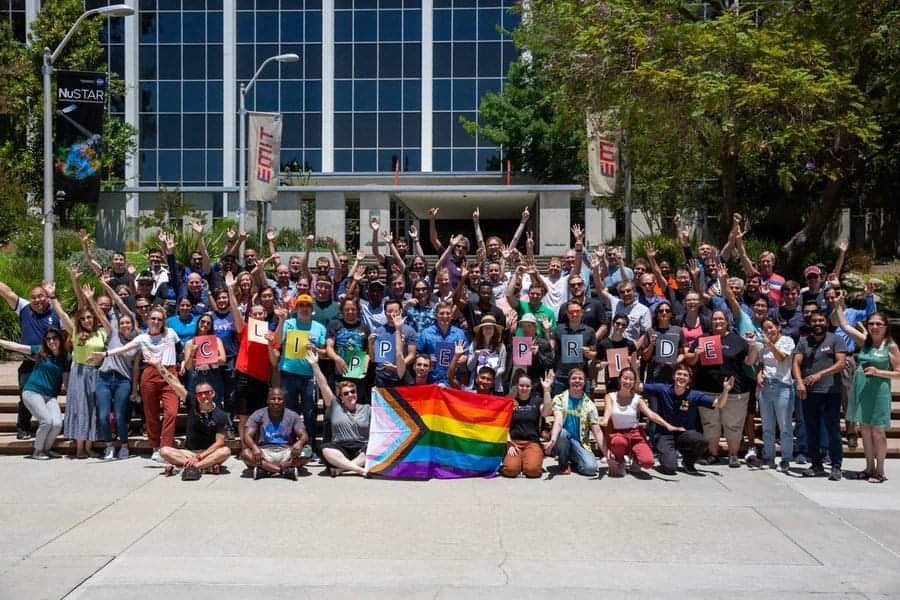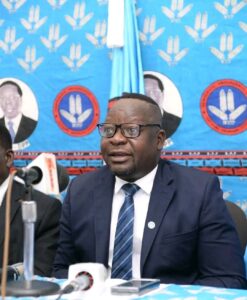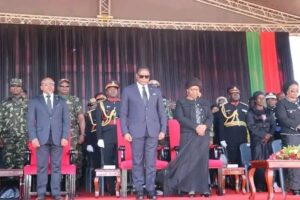Malawi’s Penal Code Stifles Fight Against HIV/AIDS Despite Progress Made -Advocates

Despite the progress made in the fight against HIV/AIDS in Malawi, the country’s penal code still criminalizes the existence of key populations, hindering efforts to wipe out the epidemic by 2030.
The Malawi National Strategic Plan in the fight against HIV/AIDS recognizes men having sex with other men, female sex workers, transgender individuals, people who inject drugs, and prisoners as key populations that are at a higher risk of contracting the virus.
Speaking during a day long training workshop with media practiotioners in Mzuzu on Tuesday, the National Coordinator for Diversity Forum, Dunker Kamba said the penal code of Malawi criminalizes same-sex relationships leading to the discrimination and stigmatization of LGBTIQ individuals in the country making it difficult for them to access healthcare services, including HIV testing and treatment, further perpetuating the spread of the virus.
Going through some recent research findings reports it transpired that female sex workers are also still facing legal barriers in Malawi, with laws that criminalize sex work leading to them being marginalized and unable to access essential HIV/AIDS prevention and treatment services.
“Female sex workers, transgender individuals, people who inject drugs, and prisoners are also disproportionately affected by the criminalization of their existence, making it challenging for them to access the necessary resources to protect themselves from HIV/AIDS.
“In light of these challenges, civil society organizations and the media in Malawi are being urged to engage in serious awareness campaigns to help educate the public about the importance of inclusivity and eliminating discrimination against key populations in the fight against HIV/AIDS,” reads part of the research finding reports.
Kamba further stated that by raising awareness and advocating for the decriminalization of these populations, progress can be made in achieving the goal of eradicating HIV/AIDS by 2030.
Among others the workshop tackled on: increase awareness on LGBTIQ issues, sensitivity and accurate reporting and the shaping of the public perception and policy.
A Mzuzu based legal practitioner who did not want his identity to be disclosed acknowledged LGBTIQ individuals as relevant stakeholders in the country just like elsewhere hence need to reconsider repealing the penal code and work towards creating a more inclusive and supportive environment for key populations in their efforts to combat the HIV/AIDS epidemic.
“Only by working together and challenging discriminatory laws can Malawi truly make progress in the fight against HIV/AIDS, every human-life matters, it wouldn’t be wise to punish the key populations by stopping them from accessing friendly health service. Moral values are pertinent, it is just as good as husbands cheating on their wives they don’t get punished,” he said.
He also argued that despite the criminalization of LGBTIQ issues, Malawi has a National HIV/AIDS Strategic Plan that includes initiatives aimed at addressing such specifics recognizing them as disproportionately affected by HIV/AIDS and faces unique challenges in accessing healthcare services abd recommending: increasing awareness and education about HIV/AIDS among LGBTQI individuals., providing access to HIV testing, treatment, and care services that are sensitive to their needs.
Commenting on continued criminalization of LGBTIQ individuals, Francis Mabedi of National AIDS Commission’s Acting Public (NAC) said the legal provision does not mean prohibiting someone from accessing other public services including health care (HIV and AIDS services).
“The issue of self stigma amongst the said sub-populations and general stigma by some of the service providers, NAC is trying to work on the two in form of advocacy, capacity building to service providers and awareness to opinion leaders in an efforts to address the challenges and improve HIV and AIDS service uptake by the said sub-populations among other key notable interventions,” Mabedi said.
Meanwhile, the Malawi government, with support from international organizations and NGOs are implementing various programs aimed to address the HIV/AIDS epidemic among LGBTIQ individuals include peer education, outreach, and counseling services, as well as the provision of condoms, lubricants, and other commodities.




